Nasa releases first set of full colour James Webb photos
The first full-colour images from Webb are the result of more than 20 years and $10bn of engineering and work.
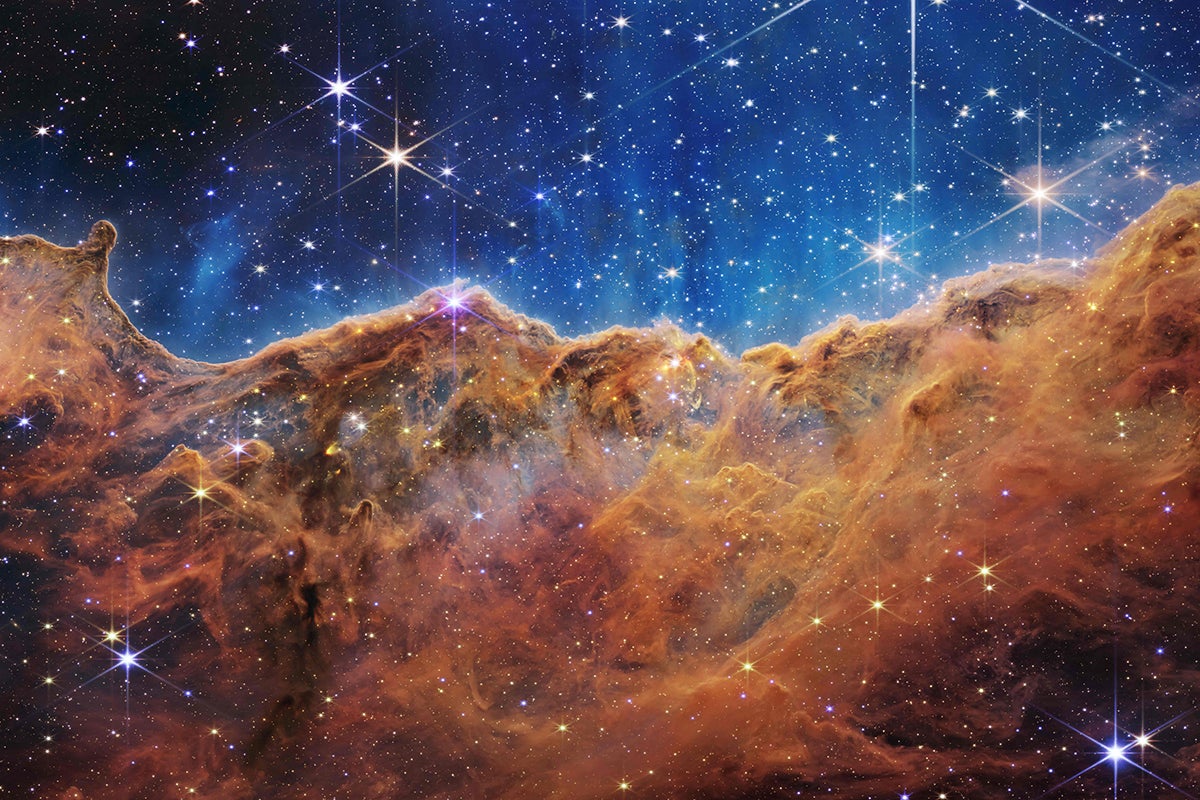
Your support helps us to tell the story
From reproductive rights to climate change to Big Tech, The Independent is on the ground when the story is developing. Whether it's investigating the financials of Elon Musk's pro-Trump PAC or producing our latest documentary, 'The A Word', which shines a light on the American women fighting for reproductive rights, we know how important it is to parse out the facts from the messaging.
At such a critical moment in US history, we need reporters on the ground. Your donation allows us to keep sending journalists to speak to both sides of the story.
The Independent is trusted by Americans across the entire political spectrum. And unlike many other quality news outlets, we choose not to lock Americans out of our reporting and analysis with paywalls. We believe quality journalism should be available to everyone, paid for by those who can afford it.
Your support makes all the difference.Nasa released the first complete set of full-colour images taken by the James Webb Space Telescope, revealing stunning images of distant nebulae, galaxies, and uniquely detailed spectral data from an exoplanet’s atmosphere.
The images were introduced live on Nasa’s website shortly after 10.30am EDT on Tuesday following the release of the very first image on Monday night, when US President Joe Biden introduced the first Webb deep field image of some of the faintest galaxies ever imaged in infrared light. The images released on Tuesday include Webb’s photos of the Carina and Southern Wheel nebulae, a collection of galaxies known as Stephen’s Quartet and a spectrum of light from the exoplanet WASP-96b.
The first image shown on Tuesday is the same deep-field image first introduced by president Biden on Monday evening.
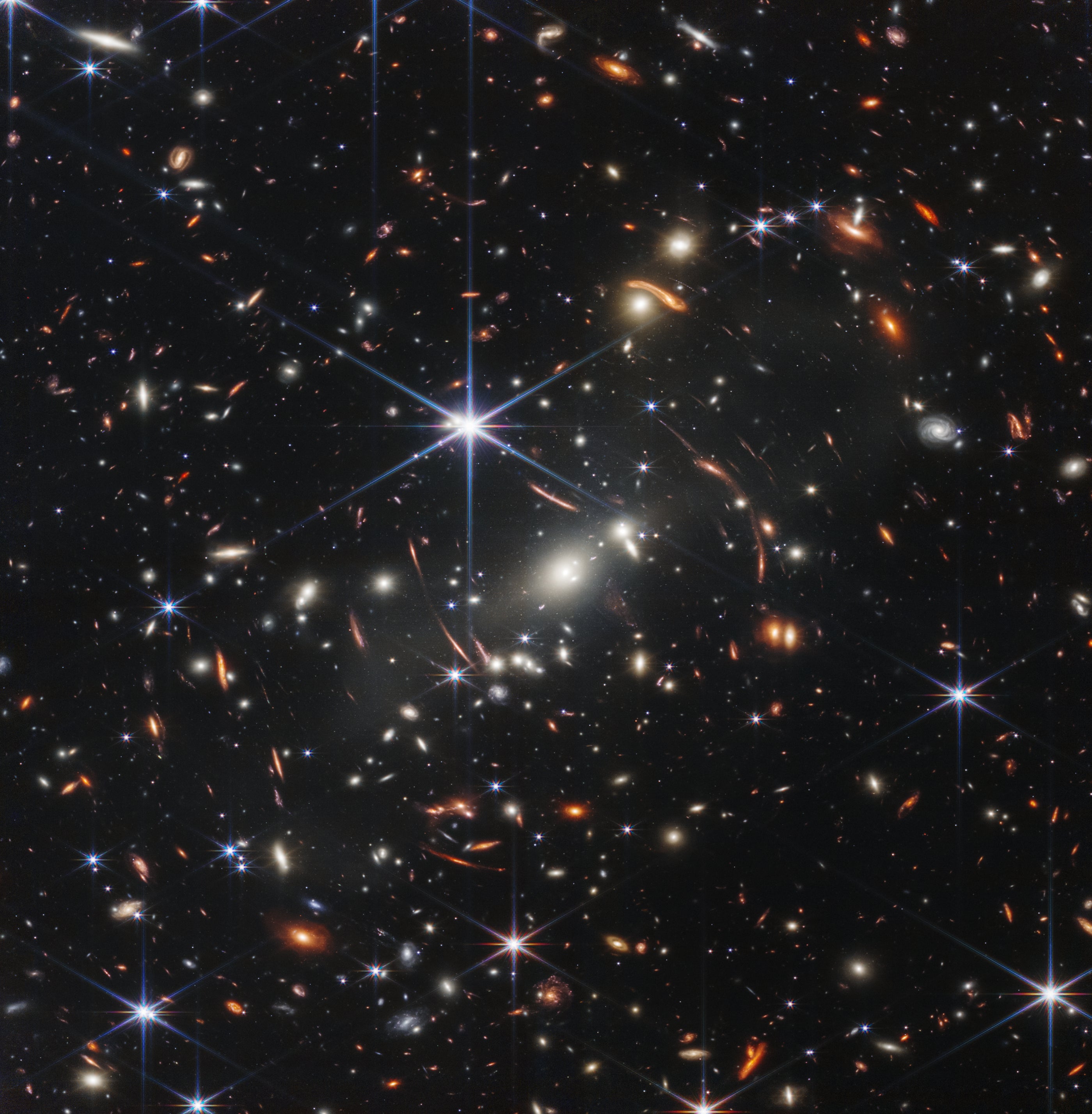
The deep field shows thousands of galaxies, some more than 13.2 billion light years away, magnified by the gravity of a larger galaxy cluster in the foreground, causing the noticeable distortion in the image.
The second image is a spectrum of light from the exoplanet WASP-96b, information about the chemical make-up of that planet made possible by Webb’s infrared spectrometer instrument, according to Nasa astrophysicist Knicole Colon.
“We observed the planet as pit passed in front of a star,” she said. “The starlight filters through the atmosphere and you can break that down into wavelengths of light.”
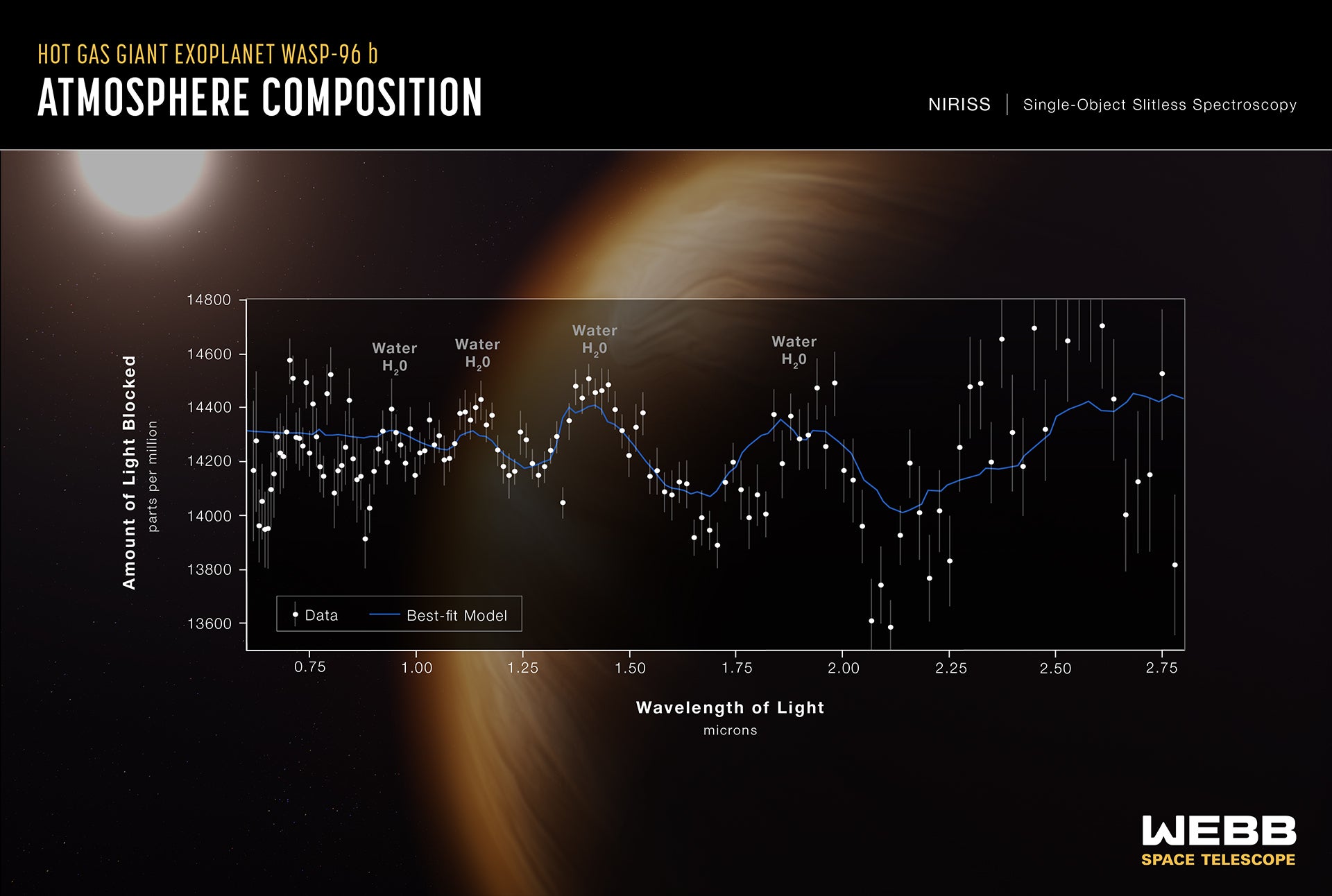
Those wavelengths show up as “bumps and wiggles”, Dr Colon notes, which in this case indicate the presence of water vapour in the atmosphere of WASP-96b.
The third image, released on Tuesday, was of the Southern Wheel Nebula, Webb’s portrait of a dying star. The release includes two different views of the nebular, the first taken with Webb’s near-infrared instrument, and the other taken with Webb’s mid-infrared instrument, allowing astronomers different views of the structure of this distant cloud of gas expelled by a star in its death throes.
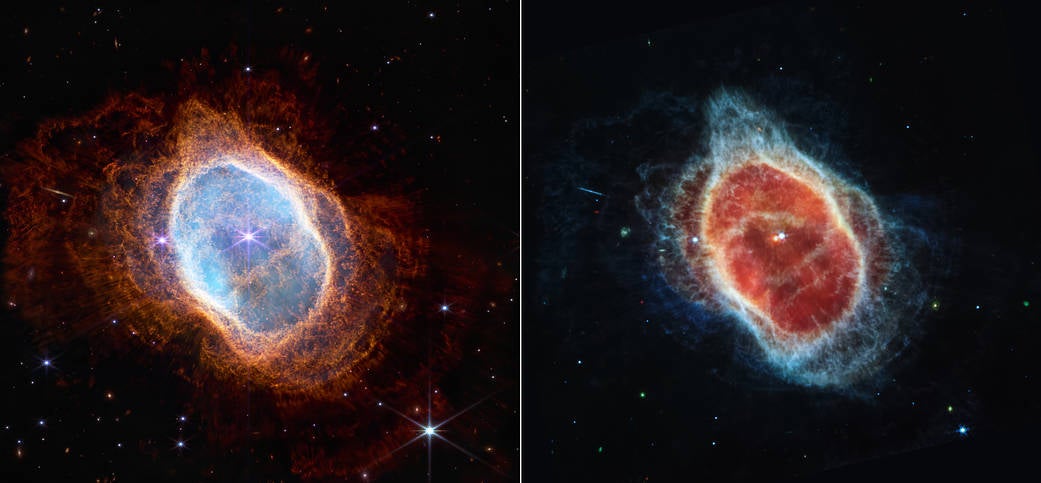
The fourth image, released on Tuesday morning, was of Stephan’s Quintet, a collection of five galaxies about 290 million light years from Earth. Two of the galaxies are in the process of merging, which helps astronomers understand the mechanisms of galaxy growth.
In the top galaxy in the image can be seen the bright glow of gas swirling around a black hole.
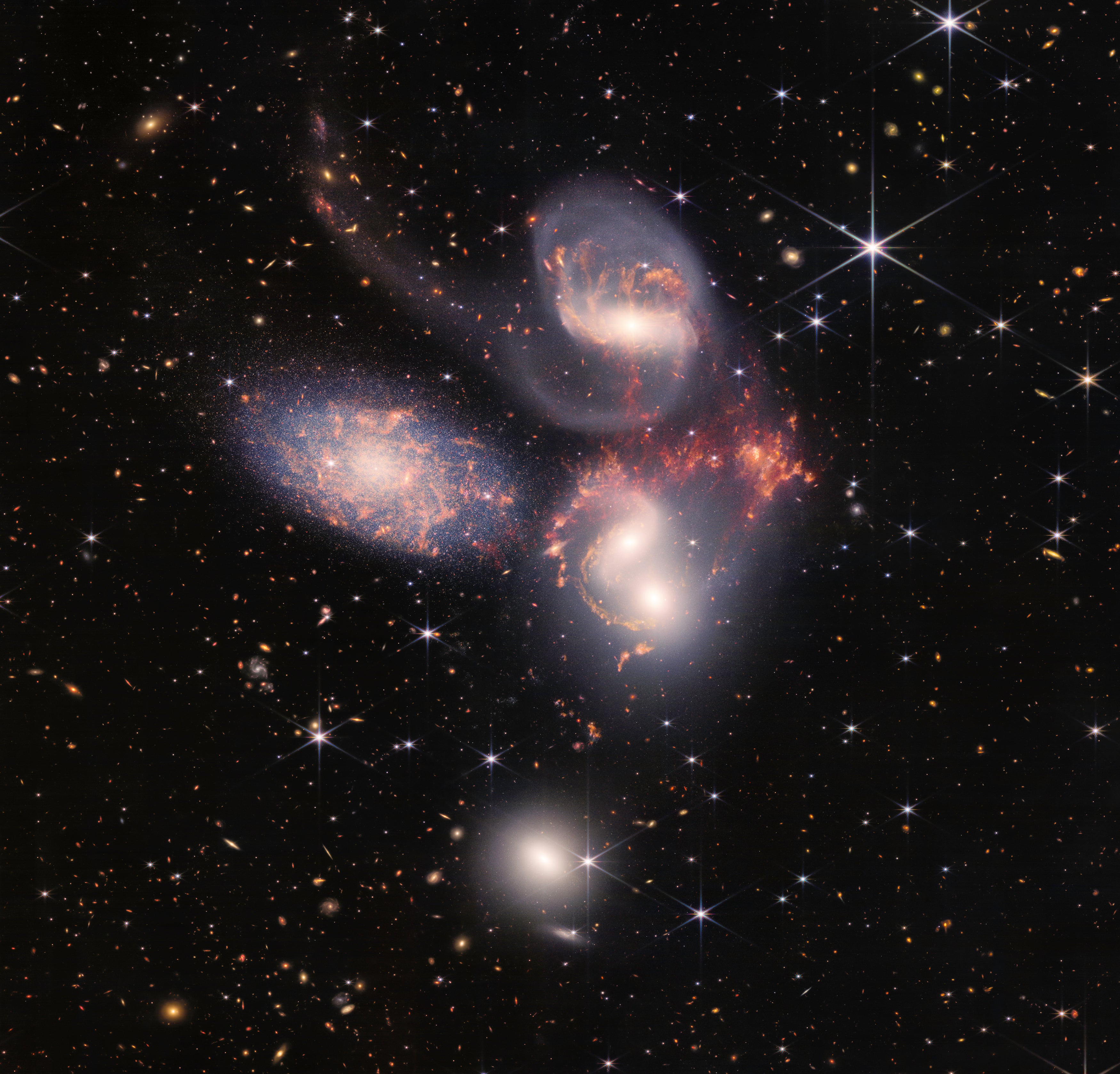
The last image revealed is a stunning new look at the Carina Nebula, which is about 7,600 light years away in the southern constellation of Carina. The Hubble Space Telescope has also produced stunning images of the Carina Nebula, but the Webb image reveals new levels of detail, revealing hundreds of never before seen infant stars forming in this stellar nursery.
As noted during the image release webcast, these five images are just the appetiser for a Webb Telescope science mission that is just beginning, and is expected to last for another 20 years. New discoveries and new images will be coming soon, and keep coming for a long time.
Join our commenting forum
Join thought-provoking conversations, follow other Independent readers and see their replies
Comments